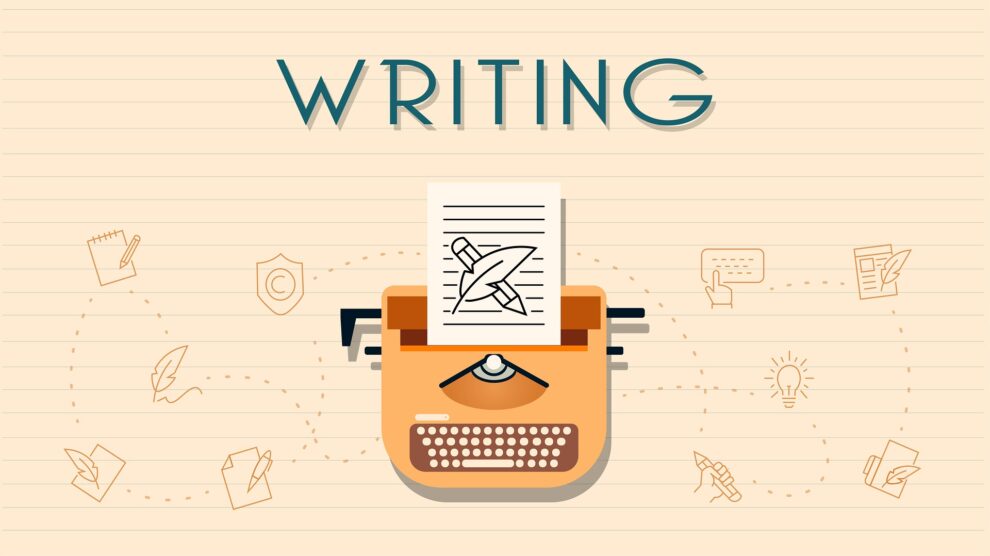Article writing is an art and not everyone’s cup of tea. Though anyone can write an article ignoring quality as a metric, you need to stand out from the general crowd. You need to learn how to write excellent content that engages readers. It’s a no-brainer. Well-written content will help you make an impression among the thousands of low-quality blogs and articles that people stumble upon daily on the web.
The good news is that writing does not have to be agonizing, and with a little discipline and willingness to learn, you can take your articles from acceptable to enviable. By following a few tips and tricks, you will find that enhancing your article writing skills is easier than you may think.
Here is how.
1. Keep it simple
One mistake that writers often make is to overwrite and complicate things. Many amateur writers use overly verbose content that drones on and on, causing readers to lose interest. If you can convey your message across in fewer words, then do it. Never use forty words for something that could be said in twenty.
2. Eliminate distractions
The Internet and social media can easily distract you while writing. It takes around 17 minutes for the human brain to refocus on a task after a distraction. Losing focus in the middle of writing can have repercussions on the quality of your content. To write the best quality content possible, it is, therefore, advisable to eliminate distractions and focus solely on writing.
Put your phone on silent mode and disable notifications on your computer so that you don’t get distracted in the middle of a writing session. In doing so, you will not only get more accomplished, but the quality of the content that you write will also improve.
3. Create an outline
Before putting pen to paper, generate an outline of what you plan to write. An outline does not need to be complex. A simple framework that explains the sections of the article and their order may be enough. Outlining is particularly important when you are tackling complex topics because it helps you construct and organize your ideas in a sequential manner and a thoughtful flow. You can refer back to your outline if ever you start feeling lost during the writing process.
4. Use a wide vocabulary
Having an extensive vocabulary is critical to being a successful writer. However, there is a difference between using intelligently selected words and just filling pages with large and unnecessary vocabulary. It may make you sound smart but at the cost of losing your readers.
The level of vocabulary you use largely depends upon the audience you are writing for. If you are writing for professionals, your writing should reflect that; however, if you are addressing the general public, you might need to cut the difficult words that your audience might not understand.
5. Develop your own style of writing
While there is no harm in imitating the writers you admire, you should develop your own distinct style and make an identity for yourself. You probably have a list of writers that you read often, and so, it is very natural to imitate them while writing. But here is a secret; when readers decide to follow your content over someone else’s, what they really follow is you, your style, and tone.
You may struggle to find your voice in the early days of your writing ventures, but as you gain experience with time, you will start to develop your own distinct writing style. It distinguishes you from everyone else, and it is precisely for this reason that your audience will read and share your content over one of your competitors.
6. Read more
The best writers are also avid readers. Reading on a regular basis is an effective way to develop your writing skills, as it gives you more “firepower” in your writing arsenal. You get exposed to different styles, word choices, and methods of writing. You also uncover new ideas that you would otherwise have never thought of.
Diversify your reading material. Expand your horizons to challenging material by reading blogs, scientific articles, fiction, nonfiction, or anything that will expose you to new styles of writing.
7. Do your research
Failing to do your research undermines your credibility as a writer. It is essential for writers involved in academic work or papers because it can be hard to search for relevant and credible research on a particular subject. In their eagerness to deliver an urgent research paper, many writers take shortcuts, ranging from accidentally fudging a statistic to being lazy when it comes to attribution on professional research papers. This not only makes you look like an amateur, but it can also land you in big trouble with your editor/boss.
You do not need to spend weeks to cross-reference every statistic, but common sense should prevail here. Don’t rely exclusively on sites like Wikipedia, and use primary sources whenever possible.
8. Don’t push through the writer’s block
Sometimes, you spend hours and hours sitting in front of your computer and staring blankly at the screen, miserably trying to come up with a word that fits your ideas.
Give yourself some time when this happens.
Take a break, go out and socialize, or simply take a nap. Fighting writer’s block will accomplish nothing. Instead, it will likely prolong your inability to write and leave you frustrated. Just take a break and restart a few hours later with a fresh perspective and you will find yourself doing just fine.
9. Find a good editor
Even if you are an incredible writer, you need a second pair of eyes to review your content.
This is quite easy when you are working for another company or with a large group of writers. However, reviewing your content can become a little difficult when you are a solopreneur or run your own blog, When you find yourself in a situation like this, use an online app like Edubirdie to double check your content for errors and have someone read it to make sure it flows well.
10. Write regularly
If you want to get better at something, you need to practice it regularly – and writing is no exception. There are no shortcuts that can transform you into an amazing writer. So, if you want to improve your writing skills, start writing on a regular basis. It will not only diminish the fear of blank pages but also help you develop a unique style. Even if no one reads it, don’t give up writing, because practice makes perfect.
Conclusion
The ability to convey your message effectively through the written word is one of the most important skills that you can develop. These tips can help you to enhance your skills and become a professional article writer or a well-known blogger. In the end, all that matters is that you write. No amount of tips and tricks can help you, if you don’t get started. Begin writing today, and you will find your skills and abilities improve over time.





